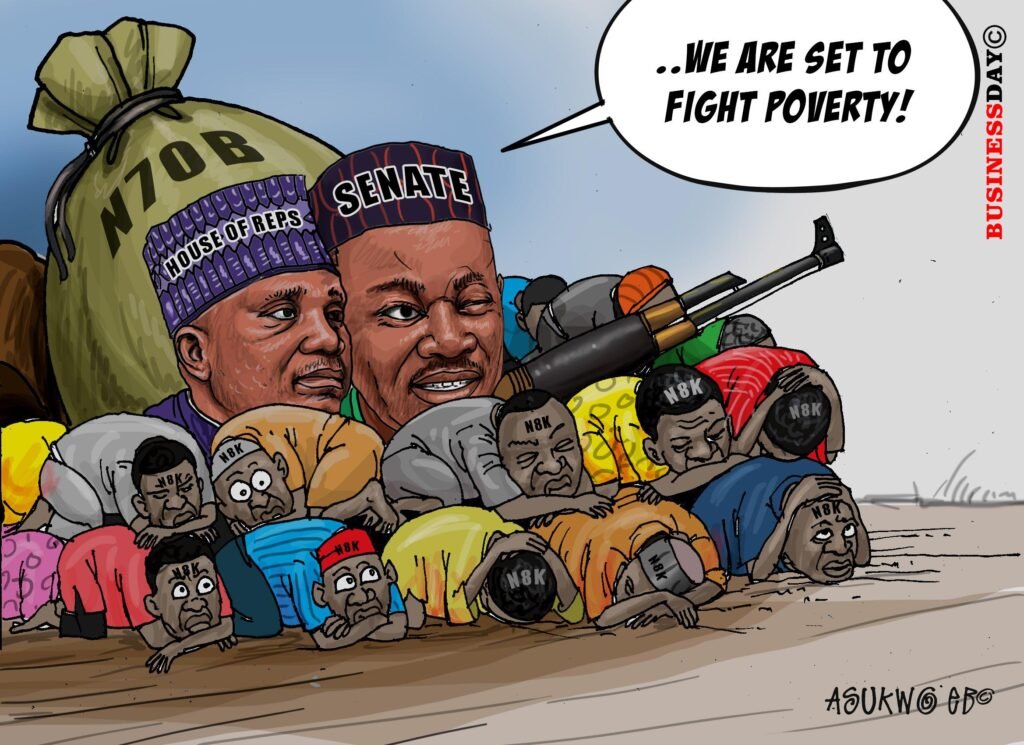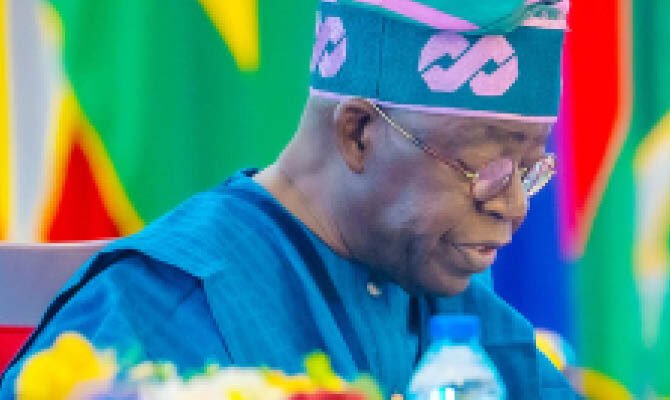This article was first published in August 2023, three months after the Tinubu administration was inaugurated. It is reproduced here on the administration’s first anniversary as a matter of public record and to help evaluate how well the Nigerian economy has fared under new management. Happy reading.
I am not one of those who believe that President Bola Tinubu does not have a genuine university degree certificate. In the 1970s and 80s when Tinubu went to America, it was not so difficult to get one. The American university system offered flexible curricula and generous opportunities for almost anyone who genuinely wanted a degree to get one. Tinubu is a fighter, so he must have grabbed one But I am almost certain that he skipped classes when some of the most important topics in Economics and Economic Policy were being discussed.
One of the first things anyone who sat through basic Economics classes would observe is that any economy is a complex system of many parts, working together to deliver measurable outcomes. These results are then held in balance by carefully thought-out policies, choices and measures. Economic changes, when they are to be made, are carefully calibrated and methodically implemented. A major rule of thumb is to avoid shocks. Shocks in economics are like trauma in medicine. They place undue stress on the systems and either leave permanent damage or kill their victims altogether.

In just a few weeks in office, President Tinubu has inverted every known economic principle. When the president announced during his inaugural speech that “subsidy is gone,” he was administering a head blow to Nigeria’s fragile economy. Those three words alone sent petrol prices up from about N165 to about N500 per liter. This represents an increase of more than 200% in one fell swoop.
Imagine drinking ogogoro, vodka or rum straight from the bottle and in large mouthfuls. Wise, old members of the bar don’t do that. They know that the head doesn’t remain the same thereafter. They proceed with measured sips, after first ensuring that the stomach is well fortified with food and sundry delicacies.
Now, petrol prices in Nigeria are one of the determinants of general price levels. They drive transportation costs which in turn propel food prices. The latter has direct consequences on shelter, electricity, gas and other utility costs. Education and healthcare are not left out. In essence, Tinubu tampered with all five components of Maslow’s Hierarchy of human needs in gargantuan fashion, all at once. The Federal Office of Statistics is still calculating the adverse impact of this single policy move on a fragile economy.
I have never known that hitting someone on the head with a baseball bat is a friendly gesture. Nor is it proven to make people smarter. Last time I checked, victims almost always go into concussion and have very slim chances of making full recovery.
Tinubu’s federal government next announced a “floating” of the Naira exchange rate. They said this was to eliminate the disparity between official and Blackmarket rates and halt rampant round-tripping by those who had privileged access to foreign exchange. This move, well intentioned as it was, sent the national currency plunging. It went from a dismal N650 to an abysmal N750 to a Dollar overnight. At the time of writing this, it was inches close to a catastrophic N1000 to a Dollar.
Next, the Jagaban gave a nod for NNPC to announce yet another fuel price rollup. Mele Kyari, manager of the world’s most inefficient national oil corporation and Nigeria’s new harbinger of bad news, announced that owing to a rise in global oil prices, the local pump price of petrol would go up by nearly another N100 per liter to about N600.
Clearly, President Tinubu is in a hurry to refill the Federal treasury emptied by his predecessor and party man, Muhammadu Buhari. Obviously, Tinubu wants to get cracking with his own projects to “renew hope” among Nigerians. The trouble is: there may be no Nigerians alive to enjoy Tinubu’s future if and when it materializes.
Imagine feeling unwell and going to see a doctor. He orders a battery of tests. The results come in and say you have “anemia.” Then the doctor looks at you knowingly and says, “Mr. Lagbaja, I can see that you have too much blood. Go and donate a pint of blood at the hospital blood bank. You should feel better afterwards…” Would you stay to conclude your consultations with this “doctor” or flee for dear life?
The new Tinubu economic team and the APC apparatchik are under the erroneous belief that Nigerians are swimming in money and once a chunk of that money is funneled into the coffers of government, then the economy resets back to good health. That is why they are investing so much energy and time trying to “widen and deepen the tax net.” Not a word on how to crank the productive capacity of 200 million highly energetic citizens who, ironically, have been prevented from making a tangible contribution to the global economy by government ineptitude.
Tinubu’s economy handlers are not telling him that a wise farmer does not milk a sick and dying cow. And a smart leader does not tax the broke, the unemployed and the bankrupt – even if he employs the Army as tax collectors.
Most Nigerians are in a very bad way today. They cannot pay their bills to meet basic family obligations. Working, able bodied people now borrow from friends and neighbors to feed. Well-dressed men and women now beg strangers on the streets for transport fare or trek several kilometers to their destinations. The only people thriving in Nigeria today are Tinubu’s acolytes and APC chieftains. These are not signs of good times.
To be fair, it was not President Bola Tinubu who created the Medieval economic model that Nigeria now operates. Credit for that must go to Muhammadu Buhari, the genius from Daura who mastered Economic theory and practice from managing a few cows in his village farm. Tinubu is only continuing from where Buhari stopped.
When heckled to provide the succor he promised in exchange for pulling the “fuel subsidy” plug, Tinubu hastily announced he was taking a $500m loan to enable him give N8,000 (less than $10) per month to 12 million households for six months! If Buhari is reputed to have created 133 million multi-dimensionally poor Nigerians, Tinubu may be targeting 200 million total invalids with his new economic policies.
Elsewhere around the globe, economy managers proceed with a different intent and agility. They aim to create mass prosperity from which taxes and revenues flow into government coffers. Government then reinvests into social and economic infrastructure, thus igniting sustainable cycles of growth. Monetary policy operators keep rates and inflation numbers low to encourage lending, productivity and global competitiveness. They keep deposit interest rates a little higher to drive savings and wealth accumulation.
In Nigeria, the reverse is the case. We are creating mass poverty to drive higher government revenues! Exactly how that will lead to urgently needed economic revival is the 8th Wonder of the World. Where our current economy managers learnt their trade remains a mystery. So, let’s give credit where it is due: Tinubu may turn out to be a great tax collector, but as an economic strategist he looks increasingly like a great disaster.
Even as an Accountant, Tinubu’s approach to public finance defies logic. Every trained accountant knows that he cannot grow revenues, profits and dividends at the expense of customer satisfaction, staff welfare and suppliers’ solidarity. If he does, he will end up with a failed enterprise.
When the US economy went belly up about 2008, businesses closed, job losses rose, home foreclosures increased and vulnerable families could no longer afford healthcare and education for their kids. What did the US government under Obama do? They dropped interest rates, pumped hot money into struggling giants like Ford Motors and General Motors. They also granted generous tax holidays to small businesses in order to create new jobs. They paid unemployment benefits to those who lost their sources of livelihood. Before long, the US economy roared back. That’s how to revive a failing economy.
There are those who say “Tinubu built Lagos” and so we should relax and watch him work his magic for Nigeria. What they won’t readily admit is that the majority of businesses which folded and left Nigeria in frustration over the last two decades did so from Lagos territory. They couldn’t breathe under the tax-driven agenda of Tinubunomics.

That agenda has been faithfully followed by every one of Tinubu’s successors whom he handpicked. I have lived and worked in Lagos for years now. I know that Lagos mints more poverty and failed dreams daily than is readily acknowledged by the Office of Statistics. I know that the much-fabled revenue growth of Lagos State is extracted from the blood and sinews of residents, not from their fat. I know that Lagos has no growth engines of its own; merely subsists on a distributive pseudo economy driven by a resilient population. If that is what we want for Nigeria in 2023, then so be it!
But if Tinubu skipped Economics classes while at school, what do we say of Nigeria’s legion of highly decorated Economists? They are like the proverbial elders who sat at home and did nothing while the goat gave birth in tethers. Why our economists have chosen the path of silence in the face of looming disaster, I have no idea. Perhaps they are waiting to be appointed as ministers or paid consultancy fees before they avail us of their honest advice. Well, when the roof caves in, it will fall on all our heads. Economists and all.
![]()



